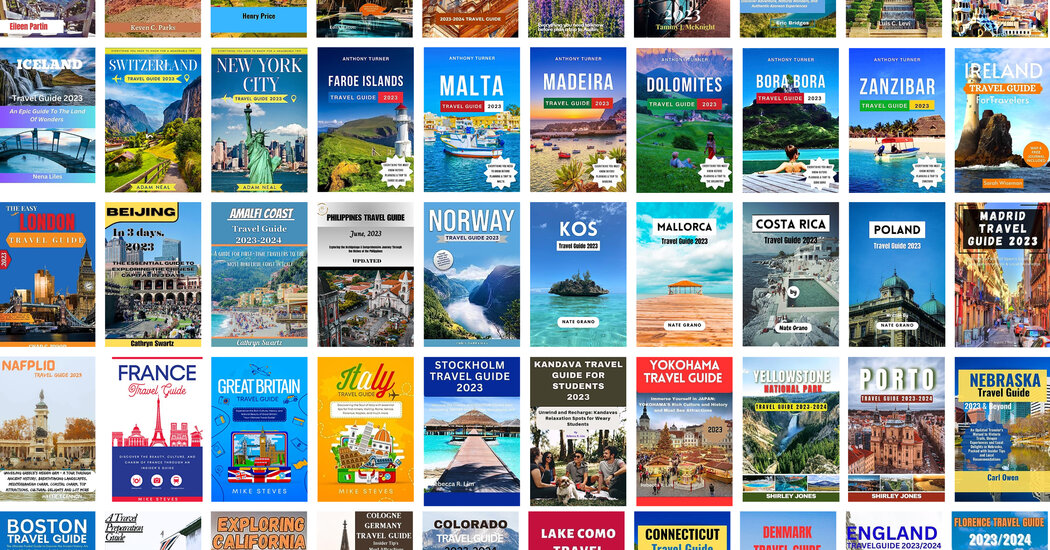In March, as she planned for an upcoming trip to France, Amy Kolsky, an experienced international traveler who lives in Bucks County, Pa., visited Amazon.com and typed in a few search terms: travel, guidebook, France. Titles from a handful of trusted brands appeared near the top of the page: Rick Steves, Fodor’s, Lonely Planet. Also among the top search results was the highly rated “France Travel Guide,” by Mike Steves, who, according to an Amazon author page, is a renowned travel writer.
“I was immediately drawn by all the amazing reviews,” said Ms. Kolsky, 53, referring to what she saw at that time: universal raves and more than 100 five-star ratings. The guide promised itineraries and recommendations from locals. Its price tag — $16.99, compared with $25.49 for Rick Steves’s book on France — also caught Ms. Kolsky’s attention. She quickly ordered a paperback copy, printed by Amazon’s on-demand service.
When it arrived, Ms. Kolsky was disappointed by its vague descriptions, repetitive text and lack of itineraries. “It seemed like the guy just went on the internet, copied a whole bunch of information from Wikipedia and just pasted it in,” she said. She returned it and left a scathing one-star review.
Though she didn’t know it at the time, Ms. Kolsky had fallen victim to a new form of travel scam: shoddy guidebooks that appear to be compiled with the help of generative artificial intelligence, self-published and bolstered by sham reviews, that have proliferated in recent months on Amazon.
The books are the result of a swirling mix of modern tools: A.I. apps that can produce text and fake portraits; websites with a seemingly endless array of stock photos and graphics; self-publishing platforms — like Amazon’s Kindle Direct Publishing — with few guardrails against the use of A.I.; and the ability to solicit, purchase and post phony online reviews, which runs counter to Amazon’s policies and may soon face increased regulation from the Federal Trade Commission.
The use of these tools in tandem has allowed the books to rise near the top of Amazon search results and sometimes garner Amazon endorsements such as “#1 Travel Guide on Alaska.”
A recent Amazon search for the phrase “Paris Travel Guide 2023,” for example, yielded dozens of guides with that exact title. One, whose author is listed as Stuart Hartley, boasts, ungrammatically, that it is “Everything you Need to Know Before Plan a Trip to Paris.” The book itself…
Click Here to Read the Full Original Article at NYT > Travel…
